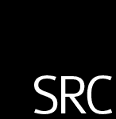Computer Forensics Expert Witness
In the computing forensics field, Sam Raincock Consultancy specialises in a range of computer cases including:
- Illegal image cases (including involving minors (IIoC), prohibited images and extreme images), rape cases and Terrorism matters.
- USBs, memory cards, hard disks, computers, servers, NAS devices et al.
- Apple Macs, Windows, Linux and Unix based computer operating systems.
- Device/Disk use with computers.
- Routers, WiFi, IP addresses, MAC address and logs/intelligence.
- Bespoke digital evidence cases.
- Acting as a single expert by combining computer evidence with telephone handsets/tablets and other digital evidence including cell site analysis and location forensics.
All instructions including for appeals are only undertaken via a solicitor, direct access barrister, law centre or corporate legal department. SRC does not accept direct instructions from members of the public (including LIPs and those self representing). This is due to case complexities, disclosure/data/privacy issues and strict expert witness rules. Sam would be grateful if you do not contact SRC directly and instead where applicable provide SRC's contact details to your legal team.
Sam provides expert witness evidence in cases involving complex technical matters, sometimes also taking instructions in cases which involve accusations being made against IT professionals. She undertakes cases involving the alleged withholding of passwords, interpretation of snippets of data, evaluating cases involving spoofing, hacking, virus and Trojan allegations/defences, reviewing data that forensic software is unable/deficient in its ability to interpret, and commenting on the validity of intricate/technical defences/use. LAA rates are available. Contact SRC with your instruction.
Commonly queried information and questions are in the following (click drop-down arrow for information) providing you with further information. However, you may wish to skip to SRC's contact details or further details about the data required in computer case.
Windows, Unix, Linux and Macs including server based systems
SRC is able to assess most computer forensic cases including anything from a USB stick to a server. Sam can review cases involving various types of operating systems including Windows, Mac OS/Apple computers, Linux and Unix based systems.
SRC has access to the latest forensic software and has current licences for the use of Axiom, X-Ways Forensics, Forensic Explorer (including Live View), and Intella as well as other forensic/high level packages. Sam can also manually review databases, and write computer programs where required to process data/use that may not be provided via commercial software or for which other analysts/experts have been unable to provide opinions. She can also validate the data present in your case to ensure the evidence presented is accurate and complete with the limitations fully explored.
Sam is a digital forensic expert, so is concerned about answering questions relating to What? has happened, How? it occured, Who? did it, Where? did it happen and Overall opinions in relation to comparing use to allegations and defences. Sam does not provide data recovery or analyst level services.
Network Forensics - WiFi, IP Address and Routers
SRC is able to undertake instructions in complex cases involving potential use of WiFi points, routers, and the assignment of IP addresses (and logged MAC addresses). This may also include evidence that has been gathered via intelligence or otherwise.
Although it may sound reasonable to expect a device to know (and log) its IP address, in practice such information is rarely logged, since a device does not need to know this information in order to function. This means that in practice, although a location based assessment may examine for this evidence, this information is generally not stored meaning in most cases other types of evidence need to be considered.
Network forensic cases are often technically complex, and can end up being full of acronyms. However, Sam will attempt to simplify the concepts using easy to undertand language, while remaining technically accurate.
Sam can review network based evidence in a case on its own, and also including combining it with computer device evidence and also with respect to mobile devices, location of use and cell site analysis.
Intelligence Reviews/Gathering (OSINT)
Sam is also able to take instructions in cases involving finding potential information within publicly accessible records. This is often referred to as Open Source Intelligence (OSINT).
Using such information, Sam can review previous website content, domain name use and registrations, and IP address use to determine what data is potentially stored.
Sam can also review for data stored on the Internet via websites, social media and on other platforms. Such reviews may be useful as part of attribution evidence assessments (e.g. where it is necessary to determine potential ownership of telephone numbers, usernames and/or email addresses). For example, if a person states they do not own a specific mobile telephone number, as well as digital forensics involving devices and CDRs, searches can also be performed to establish if there is any public information stored about the number's use. This can occur, for example, where a user registers it on Companies House or uses the number in an advert on social media or other websites.
Note that intelligence services like all service provisions offered by SRC are only provided via a legal team as part of an instruction in a legal case. Sam does not provide any private detective/investigation services to the public or otherwise.
Bespoke Testing/Evaluations
SRC can test and consider how applications work in very specific circumstances (including for bespoke systems) and comparing this to the evidence present within cases, as well as evaluating the policies and procedures of an organisation. In the past, this has involved Sam testing/reviewing of bespoke hospital, tax, military, police and large organisations systems and security procedures.
Sam also takes instructions for a range of digital evidence cases involving ‘bespoke’ investigations requiring novel solutions which may not be achievable using commercial forensic software.
Are you able to Comply with MOUs?
Yes. SRC has been working in cases with MOUs for over 15 years. Sam is able to examine computers and devices on stand-alone computers and with the required level of security as required by UK police force Digital Forensic Units (DFUs).
Sam can also provide in-person collections of data from police forces throughout the UK.
FSR - Code of Practice
Since 2nd October 2023, computer forensics including at an expert witness level, requires Compliance with the Code of Practice from the Forensic Regulator (388 page PDF Document opened from an external site)
SRC follows strict procedures in terms of securely reviewing computer cases. Sam also fully reviews raw data and otherwise to ensure all reports are prepared accurately and does not provide "push-button" forensics. However, SRC is currently non-compliant with The Code of Practice, and does not have ISO17025 accreditation. A full discussion of this will be provided prior to estimating, and where the instruction is accepted, the required non-compliance declarations made. SRC can work within the ACPO Guidelines as is appropriate.
Hacking and Virus Allegations and Defences
Sam receives instructions in cases where there are allegations of hacking. She can review the technical evidence of such cases.
SRC also undertakes instructions in cases whereby hacking/viruses and/or third party use are part of the defence case. She will review fully how material has come to reside on a device and provide opinion-based evidence in relation to if this may have been caused by a virus, hacker, third party or is user initiated (and how).
It is important to note that these cases tend to involve a much more detailed assessment than a simple virus scan - such a scan in Sam's view is limited, since it will only be able to detect what viruses are present at the time the computer/device was seized and not necessarily consider what was present relating to usage in the past. Hence, it is important that such use is considered fully to ensure the correct assessment is made and that a defence case is fully explored.
Instructions involving Illegal Materials
SRC is experienced in dealing with a range of illegal to possess materials requiring secure procedures and Memorandum of Undertaking (MOU) to be signed with the police. When funding is granted and the appropriate permissions are in place, Sam can liaise directly with the police, obtaining the disclosure of this material following the required procedures.
SRC can undertake cases where there are charges relating to terrorism (including articles). Sam can also deal with the issues and sensitivities involved in rape cases including those that involve minors.
SRC also takes instructions involving alleged indecent images of children, extreme images and prohibited images. Sam is experienced in reviewing such cases (including assessing the imagery) and is familiar with caselaw and legal requirements in this area.

SRC does not supply generic/theoretical statements in cases, since digitally the possibilities are endless - meaning it will be necessary to obtain access to the required data in your specific case.
Obtaining Access to Data and Instructing SRC
In criminal computer cases, this usually requires a set process whereby Sam will liaise directly with the police Digital Forensic Units (DFUs) to obtain copies of the computers and other digital devices (including telephone handsets) when the required permissions are in place.
SRC can assist with obtaining the required data disclosure in digital evidence cases including providing you with the correct technical wording for your disclosure request and to manage the disclosure of data from the CPS/police/CTU or digital forensic unit (including signing required MOUs) and organising collection.
In order for SRC to assess what is required in your criminal case, it is useful if you can initially provide the following information/papers:
- Trial date and any Court or other deadlines.
- Statements and reports in relation to the technical evidence and seized digital devices.
- MG5 or case bundle.
- Details of defence or a defence statement.
- Any specific instructions you have and/or Counsel's advice.
Sam may also take on a limited number of civil/family matters particularly if they involve the investigation of a death/serious injury or involve children. However, please note that for any case, it will be essential that you ascertain written permission for access to the devices and data in full (for computers this will be everything stored including possibly deleted data) since without this SRC will be unable to progress the case. Please provide case details when contacting and Sam can advise you accordingly.
Sam and has acted as an experienced expert in a range of computer, security and software evaluation cases - see casework list for a sample list of previous cases.


